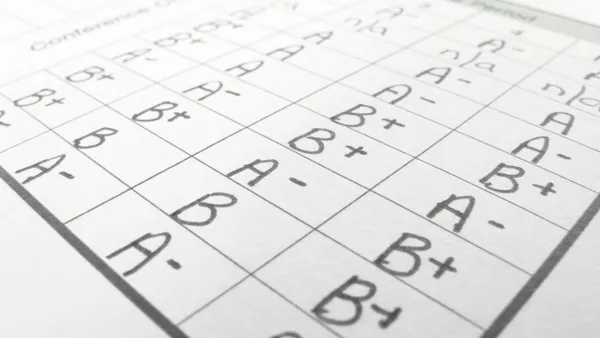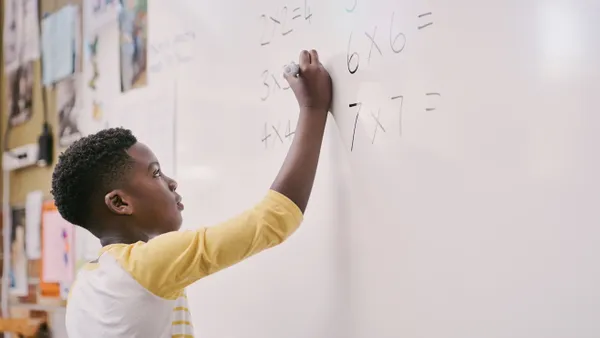Dive Brief:
-
New York City Public Schools is implementing a new pre-K-12 Black studies curriculum called the Education Equity Action Plan in the 2024-25 school year that "acknowledges history and contributions of Black people, from early Black societies through the present," according to the coalition that developed the curriculum.
-
The EEAP Coalition includes six organizations that worked with the New York City Department of Education to create and launch the curriculum, which is described as a "landmark" three-year project.
-
The curriculum aims to provide "an African-centered perspective that predates slavery and values unity, wholeness, cooperation, liberation, and education as the practice of human freedom," according to NYC Public Schools’ website.
Dive Insight:
The pre-K-12 Black studies curriculum is the first of its kind to be rolled out in the nation's largest public school system, which serves over 1 million students in over 1,800 schools, according to the EEAP Coalition.
The six organizations in the EEAP Coalition include:
- United Way of New York City
- Eagle Academy Foundation
- Black Edfluencers United
- Association of Black Educators of New York
- The Black Education Research Center at Columbia University's Teachers College
- New York City Council Black, Latino and Asian Caucus
The curriculum was partly inspired by "the movement of social justice and reform during the COVID-19 Pandemic and civil unrest of this time," the EEAP Coalition's website said.
Its inspiration and implementation in the district adds to the bifurcation among Democratic and Republican policymakers nationwide in how schools approach curriculum related to race.
During COVID-19, several Republican states passed "anti-critical race theory" or "divisive concept" laws that leaders said were meant to curb instruction they feared would increase divides among racial groups. The legislation escalated nationwide following civil rights protests over the deaths of Black Americans — like George Floyd — at the hands of police. However, opponents of those laws said they stifled important race-related conversations and overlooked how history continues to impact the Black experience today.
On the other side of the divide, traditionally Democratic states like Connecticut, Delaware, Rhode Island and Maine have in recent years required Black history courses or electives.
In June 2019, Connecticut became the first state to require that all high schools offer courses on African American, Black, Puerto Rican and Latino studies, according to Connecticut House Democrats. High schools were required to offer those courses by Fall 2022.
"This is a groundbreaking educational achievement and I hope this implementation starts a trend in other states," said Connecticut state Rep. Henry Genga in a statement released in 2020.
The EEAP Coalition says on its site that the New York City Public Schools initiative is not "Critical Race Theory, which is a post-college level course that looks at how our legal system and criminal justice system have been unfair to people of color." Rather, it's meant to be "an integrated curriculum that better reflects the student body” and “will help all students better understand the role of race and how it impacts the world."
The initiative in New York City Public Schools was piloted in 120 schools in 18 school districts across the city, reaching approximately 6,500 students during the 2023-24 school year, according to local reports. The district has made the 520-page curriculum available on its website to serve as a guide for other educators and school systems nationwide, according to reporting from the Staten Island Advance.








 Dive Awards
Dive Awards






